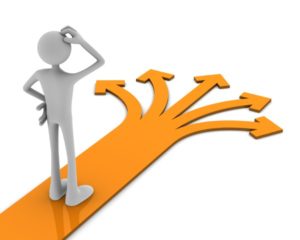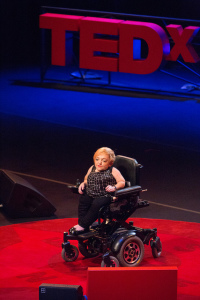Fatigue after brain injury: Cognitive fatigue, Brain fog, Mental fatigue, Brain fatigue, Brain exhaustion, Mental tiredness, Foggy brain.
I love the last one!
All terms that can mean “I’m so tired my brain hurts”.
Please Remember This:
To begin here is the key message I want to make –
We can all get foggy brain. Most of us recover quickly and it doesn’t happen too often. After brain injury – foggy brain is not cute, and it is often not a temporary thing.
After brain injury ‘foggy brain’, is more professionally called cognitive fatigue. It does not go away without paying it attention and it can come back over and over again.
Introducing Cognitive Fatigue After Brain Injury
A few years ago (I just realised – 3 years ago almost to the day!) I wrote a post “I’m So Tired My Brain Hurts.” This has been the source of many letters, and one of the most read articles. Recently it was suggested this be reposted. Today is the day – a re-post, re-search and a re-fresh.
Please visit the original below (but come back, there’s more – bigger and better):
[button link=”https://www.changedlivesnewjourneys.com/cognitive-fatigue/” size=”large” style=”info” color=”silver” bg_color=”#000000″ border=”#000000″ text=”dark” window=”yes”]I’m So Tired My Brain Hurts[/button]
In addition to examples in my original article this link ‘Fatigue and Neurological Conditions’ from the United Kingdom Brain and Spine organisation has real-life examples of what cognitive fatigue is like to live with:
” “Fatigue is a terribly difficult thing to explain,” writes Margo, who has MS, on her blog. “First, and perhaps most obviously to the outsider, it’s very subjective. You can’t measure fatigue like you can measure blood pressure or heart rate. It’s also invisible. When someone has a broken leg, people know that person’s not going to be able to do everything a fully able person might. When you look fine, but are deeply, cripplingly fatigued, it can be very hard to explain that you’re not just being awkward. You’re not being anti-social. You’re not ‘giving in’ to your illness. You’d love to go shopping, to the gig, to the pub. Your body just won’t co-operate.” – See more HERE.
Why Fatigue After Brain Injury?
If you find yourself responding to a “Why?” person. Here are a few possible answers to “Why does cognitive fatigue after brain injury happen?”
[ordered_list style=”decimal”]
- Physical changes such as difficulty with mobility, tremor, poor balance – all need extra effort and take up more energy.
- Memory and concentration difficulties making it hard to keep up.
- Changed sleep patterns and difficulty sleeping well after brain injury.
- Reduced fitness – a difficult one – you get tired – you exercise less – you get less fit – you get more tired!
- Directly associated with damage to the central nervouse system – the sleep/wake arousal system not working as it should
- Sometimes boredom and disinterest – less likely to be a long term cause.
[/ordered_list]
The brain is working harder to keep up all its functions, even ones that were once second nature. Eventually it is like an overload button, the brain needs a rest. And it needs it NOW.
Remember too that Cognitive fatigue is common after a brain injury. Invisible or visible brain injury. Mild, moderate or severe brain injury.
Fatigue After Brain Injury – What You Might See:
- Firstly – the obvious – feeling tired – increasingly so.
- Deterioration of cognitive and other functions as fatigue increases
- Physical tiredness – heavy limbs, no energy
- Trouble paying attention
- Not concentrating as well as usual
- More short tempered, increasing frustration
- Difficulty managing behaviour, or escalating behaviour
- Not able to do tasks normally within range
- Becoming teary, angry, confused – out of sorts
- Headache or physical changes
I found this incredible statistic “As many as 98% of people with TB’’s may have some kind of fatigue; 70% complain of Mental Fatigue.” I have not verified this information but it does make sense.
Fatigue After Brain Injury – What Might Help:
Here are some strategies for fatigue. Sorted into a range of jobs (it seemed like a good idea as I wrote). Take your pick according to what you most need –
[ordered_list style=”decimal”]
-
CEO to organise and manage.
-
The Timekeeper to set the clock for getting things done.
-
The Fitness Instructor to get you healthy
-
A Life Coach to get you, and those around you, on the right track
-
And being your own Brain Injury Expert
[/ordered_list]
Remember –
[unordered_list style=”tick”]
- Just choose the key strategies that might suit – not too many at once.
- Keep the change manageable for everyone involved.
- Prevention is better than cure! Preventing fatigue is MUCH more effective than dealing with it, once it happens.
[/unordered_list]
 1. Be A CEO –
1. Be A CEO –
Plan, Prioritise, Delegate
Plan – Track the fatigue and understand what, when, where and how. A simple step would be to keep a diary for a short time recording energy and fatigue levels throughout the day and night (well only if waking in the night).
Build a plan around the kind of fatigue experienced. If it is sleep related see what strategies or help is around for sleep.
Plan ahead for demanding activities, or when going to special events. Allow for extra rest time and / or quieter routines before and after.
Plan ahead to allow opportunity for sleep and rest, program this into the daily plan before fatigue occurs.
Prioritise – Get to know what can be realistically achieved in a day. It it is one thing then do that thing. If it is more then make a list from most important, to least important. For me being with my kids priority. Housework – another day!
If there are a number of activities or things to do on a day, work out priorities and tackle the important, and also the tasks that interest you first.
Delegate – Hire help – Use aids, equipment, technology and support to reduce effort wherever possible. For instance using mobility aids might help minimize fatigue if movement is difficult. Smart phone Apps might help memory.
Supporters can help minimize fatigue by assisting where necessary, and where appropriate. Have others carrying out tasks, understanding what needs to be done, assisting to maintain agreed rest routines.
If someone offers to help – say yes and delegate a job.
Risk management! Despite all effort to prevent fatigue it is likely it will happen from time to time.
Think ahead – develop ways to manage fatigue, if and when it occurs.
Think about what works best – at home, work, and when out.
Find yourself a “CEO office” – a quiet place free of distraction might help get things done and reduce fatigue. No I don’t mean you have to find a flash office in the city – a space somewhere (school, home, work) that works.
 Be A Timekeeper
Be A Timekeeper
Work out a timetable around what works best when:
What time of day is best for activity? We often talk about whether we are a morning, afternoon or evening person. This becomes important in planning to minimize fatigue.
Allow extra time to complete work that requires extra concentration and effort.
Think about shorter days for school or work. Add in frequent breaks according to need.
Stick to a regular bedtime routine. Increase what helps sleep – quiet consistent ‘going to bed’ routine. Decrease what hinders sleep – coffee, TV and computer before bed.
Balance the daily routine with quiet times, rests, or restful activity; sitting in the garden, a short nap or a longer sleep time.
Research the optimal time to do stuff – going shopping early morning may be less busy and therefore less tiring than afternoon times. Going to the gym late morning may be less frenetic than early morning when more people go before their work-day.
 Be A Fitness Instructor
Be A Fitness Instructor
Sounds weird I know – fitness takes energy – but it also gives it back. Staying fit can help.
Live well, eat well, move well – Maintain optimal health and fitness.
Take care with caffeine drinks and alcohol. While it might feel good for a while – the crash will come.
Work out an exercise regime that works – minimising fatigue, maximising energy.
Confusing but I also have to add: Take care with exercise that it is does not itself cause fatigue.
 Be a Life Coach
Be a Life Coach
Educate yourself and others – even when they don’t get it!
Help family and friends to understand cognitive fatigue is real. It is as a result of the brain damage, it’s not laziness or deliberate.
Learn to say NO. Some people, activities, lifestyles are draining. Say NO to activities or demands that are not important, or that would overly fatigue.
You might still say YES to big or exhausting events – plan for the fatigue with realistic rest before and after. If it needs a day of recovery – schedule it.
Listen to your body – Take notice of what factors contribute to fatigue. Work out ways to manage these as much as possible. This might include the effect of medication, weather, illness, people, places.
Familiarity. As much as possible have familiar routines and surroundings, this can reduce effort and the need to concentrate.
Look for other ideas – look at what is happening in others areas – chronic fatigue syndromes, fatigue after cancer treatments. A person with chronic fatigue syndrome and brain injury gave me a reference to the Lightening Process by Ian Cleary. I don’t know much about it but it’s to give you an idea of thinking beyond brain injury
 Be Your Own Brain Injury Expert
Be Your Own Brain Injury Expert
Brain injury is different for each person. Understand the specific outcomes of brain injury.
Learn about which outcomes cause fatigue and work on strategies to address the specific outcomes.
Allow time for the brain to heal but don’t give up – it may recover, it may improve, it may always get tired.
Sensory overload can impact on fatigue; situations such as a busy shopping centre with lights and noise. Limit or avoid these situations.
And Finally
When looking at ways to manage fatigue after brain injury remember it is better to try and manage cognitive fatigue before rather than after it happens. Plan to prevent rather than manage after fatigue occurs.
Remember to work with the whole team – the person living with brain injury, family, friends, colleagues – the whole support team when developing strategies.



Melanie ,
I must say that being your own ABI expert based on all your experience is one of those things that’s for ever expanding. I personally found since my incident with a car while cycling it has changed my prospective on my view of the world. I see more of the little things that are enormous in reality .
The improvements are gradual as I the expert learns more about or where my capacities lay now. My ABI is my friend who catches me out when a forget where the fatigue line is. Simply I know now with patience and perseverance I will be little the wiser everyday to do what I love.
Kind Regards Matthew
Oh Matthew I love your comment “Simply I know now with patience and perseverance I will be little the wiser everyday to do what I love.” We could all do with reminding ourselves of this. Thankyou Thankyou. Regards Melanie
‘Physical changes such as difficulty with mobility, tremor, poor balance – all need extra effort and take up more energy.’ If only people realised the effort it takes people with any type of disability just to get up in the morning – the extra work it takes. It’s sometimes an achievement just to do that. Add on remembering sequences, ticking of tasks, it’s bloody amazing the outcomes are so successful.
Absolutely agree. And might I recommend everyone visit http://www.excusesvslife.com to read about your adventures. Regards Melanie